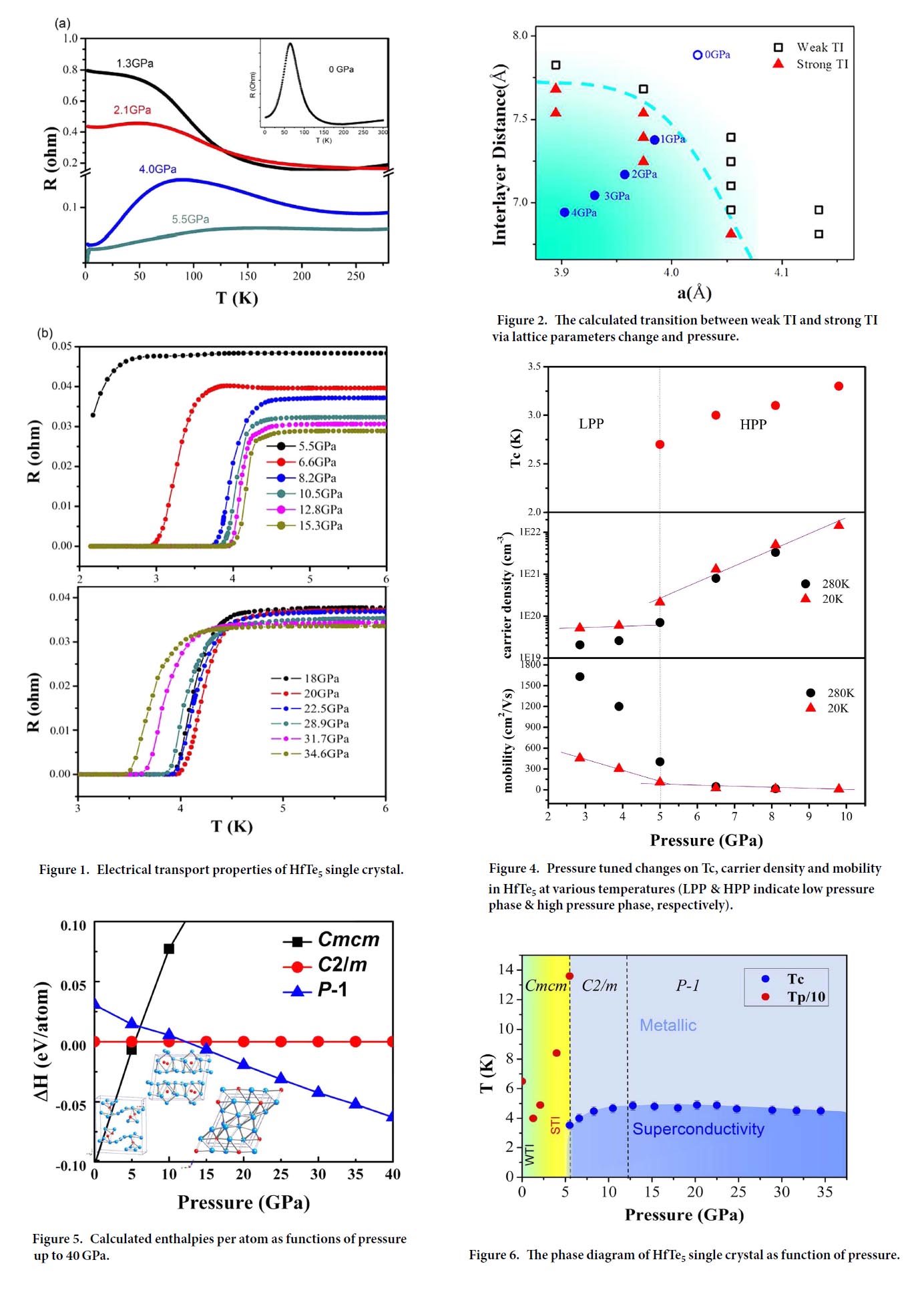HfTe5:压力调控的强拓扑绝缘体转变及超导转变
(Superconductivity in HfTe5 across weak to strong topological insulator transition induced via pressures )
Y. Liu, Y. J. Long, L. X. Zhao, S. M. Nie, S. J. Zhang, Y. X. Weng, M. L. Jin, W. M. Li, Q. Q. Liu, Y. W. Long, R. C. Yu, C. Z. Gu, F. Sun, W. G. Yang, H. K. Mao, X. L. Feng, Q. Li, W. T. Zheng, H. M. Weng, X. Dai, Z. Fang, G. F. Chen & C. Q. Jin
Sci. Rep. 7, 44367 (2017)
Recently, theoretical studies show that layered HfTe5 is at the boundary of weak & strong topological insulator (TI) and might crossover to a Dirac semimetal state by changing lattice parameters. The topological properties of 3D stacked HfTe5 are expected hence to be sensitive to pressures tuning. Here, we report pressure induced phase evolution in both electronic & crystal structures for HfTe5 with a culmination of pressure induced superconductivity. Our experiments indicated that the temperature for anomaly resistance peak (Tp) due to Lifshitz transition decreases first before climbs up to a maximum with pressure while the Tp minimum corresponds to the transition from a weak TI to strong TI. The HfTe5 crystal becomes superconductive above ~5.5 GPa where the Tp reaches maximum. The highest superconducting transition temperature (Tc) around 5 K was achieved at 20 GPa. Crystal structure studies indicate that HfTe5 transforms from a Cmcm phase across a monoclinic C2/m phase then to a P-1 phase with increasing pressure. Based on transport, structure studies a comprehensive phase diagram of HfTe5 is constructed as function of pressure. The work provides valuable experimental insights into the evolution on how to proceed from a weak TI precursor across a strong TI to superconductors.

